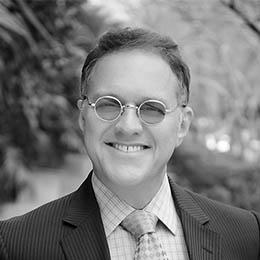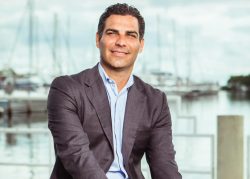After months of skyrocketing luxury single-family sales, condo developers are starting to reap the benefits of the surge in ultra-wealthy out-of-towners moving to South Florida.
Until recently, much of the luxury sales and rental activity has been concentrated in waterfront single-family homes, as residents of the Northeast have flocked to South Florida during the pandemic. But as inventory dwindles, some buyers are now turning to new luxury condos projects, scooping up multimillion-dollar units, with a desire to close quickly, brokers and developers say.
Last year, the region’s condo market was saddled with high inventory, and developers offered a slew of incentives to boost deals. By the fourth quarter, condo/townhomes sales in Miami-Dade jumped more than 30 percent compared to the same period in 2019, to 282 sales, according to the Keyes Luxury South Florida market report.
And demand for condos shows no sign of slowing in the new year, brokers say.
At the Zaha Hadid-designed One Thousand Museum in downtown Miami, two units sold in January. A tech investor from San Francisco bought penthouse 5001 for $16 million, and a hedge funder from New York bought a half-floor unit on the 47th floor for $6.3 million, according to Reid Heidenry of One Sotheby’s International Realty, who represented both buyers. Harvey Daniels and Anna Sherrill, also with One Sotheby’s, represented the development group.
Heidenry, who declined to identify the buyers, said both are relocating for tax purposes and quality of life. He said the deal marks the second most expensive condo sale to ever close in the city of Miami, following David and Victoria Beckham’s nearly $20 million purchase at One Thousand Museum last year.
Other deals are in negotiations, according to Louis Birdman, a co-developer of the 62-story, 84-unit luxury condo tower along with Gregg Covin, Gilberto Bomeny, Kevin Venger and Todd Michael Glaser. Buyers are hailing from California, the Midwest and the Northeast.
Farther north, at the Sapir Corp.’s Arte by Antonio Citterio in Surfside, the developer sold the penthouse for $33 million in December, and recently sold two other units for $16 million and $10.2 million each, said Giovanni Fasciano, a co-developer of the building.
A buyer from the West Coast purchased the larger unit, a furnished, six-bedroom duplex condo, for its $16 million asking price. Unit 202, with nearly 7,000 square feet of interior space, includes two kitchens, a master suite overlooking the ocean, and a nearly 1,500-square-foot wraparound terrace. Dean Bloch of Douglas Elliman represented the developer in the sale. Chad Carroll from Compass represented the buyer.
The smaller unit, 501, sold for $250,000 above the asking price to a buyer from New York, according to Fasciano, who declined to name the buyers. In many cases, the buyers work in tech or finance and are increasingly requiring confidentiality on their deals, often buying in trusts or hidden LLCs.
Fasciano said that buyers are “realizing the convenience of living in a luxe building” versus a single-family home. The building is 50 percent sold, with eight units remaining.
Danny Hertzberg, an agent with the Jills Zeder Group at Coldwell Banker, said the ultra high-end of the condo market is seeing more activity than the rest of the market, especially in Miami Beach, Surfside and other beachfront towns. When the pandemic hit, “it was crickets in condos.” Now, buyers are now more confident about living in condo buildings, he said.
Hertzberg is noticing an uptick in showings of larger and more expensive units now that inventory of waterfront homes has decreased dramatically. At the Continuum in South Beach, only six showings are allowed per day due to Covid restrictions. Hertzberg said showings have had to be rescheduled due to increased demand.
At the Ritz-Carlton Residences in Miami Beach, Lionheart Capital secured a buyer for one of its penthouses for $15 million, CEO Ophir Sternberg said. An unnamed hedge funder from Chicago and his family, who are relocating, paid cash for the unit, which spans 6,300 square feet with an additional 8,500 square feet of terrace space.

Philip Freedman
Many buyers are seeking to close quickly. The $15 million deal went into contract in December and closed Jan. 2, said Philip Freedman, director of sales. Jennifer Markovich and Freedman, who are both with Douglas Elliman, represented the developer, and Lucas Lechuga of Luxe Living Realty brought the buyer. The unit was asking more than $17 million.
Freedman said about 20 percent of the Ritz-Carlton, Miami Beach’s 111 units remain to be sold. The building was completed in late 2019.
“Buyers are coming in and very quickly making a decision,” Sternberg said. “Suddenly there’s a real sense of urgency.”
Over the last month, the developer has secured 11 contracts for sales totaling more than $50 million, three of which have closed, a spokesperson said.
Another Ritz-Carlton-branded development, the Ritz-Carlton Residences Sunny Isles Beach, recently announced $30 million in closed sales over the last 30 days.
The tower, developed by Fortune International Group and Château Group, was completed in March, just before the pandemic shut down businesses throughout South Florida. Since closings began, the developers said they’ve recorded sales totaling more than $630 million. It’s 85 percent sold.

Edgardo DeFortuna
Edgardo Defortuna, CEO of Fortune, said about 70 percent of the buyers are domestic, a reversal compared to years past when international buyers flooded new condo buildings. And he and co-developer Manuel Grosskopf said the buyers are relocating to South Florida, not using the units as second or third homes.
“We are experiencing more people living instead of vacationing,” Grosskopf said.

Ana Bozovic
Some question how long the trend will continue, especially as more and more businesses announce plans to expand or relocate to South Florida. Ana Bozovic, founder of Analytics Miami, is bullish on the long-term outlook for the region.
Read more

“The conditions driving people to South Florida have only been exacerbated by the pandemic,” she said. “Miami will continue to shine over the next six months, as the [difference] in quality of life, compared to places like New York City, gets bigger and bigger. Meanwhile, more people and business will have moved, thereby creating social proof and pushing momentum yet higher.”
Correction: An earlier version of this story misidentified Reid Heidenry, as well as misidentified the buyer of unit 501 at Arte based on incorrect information from the developer.
